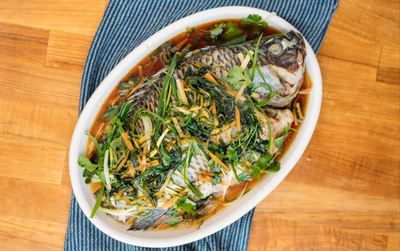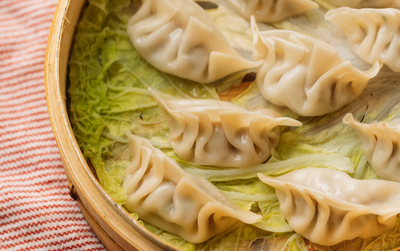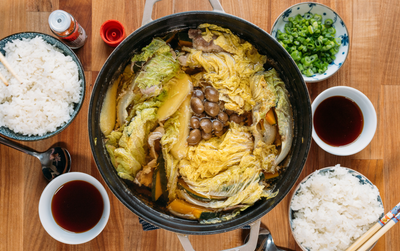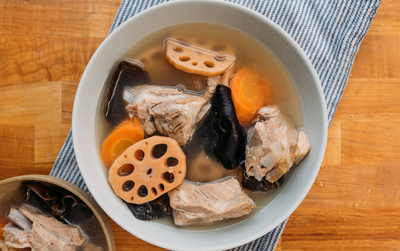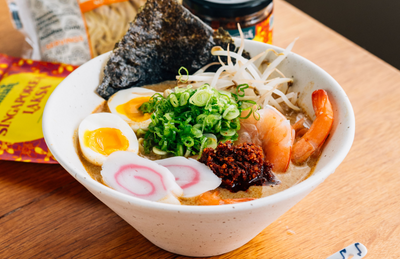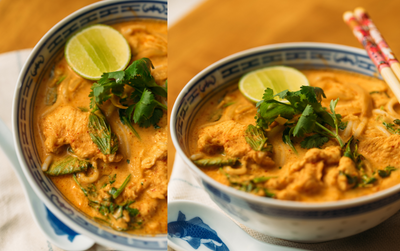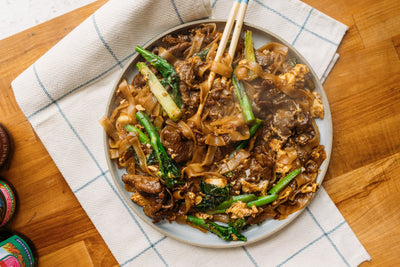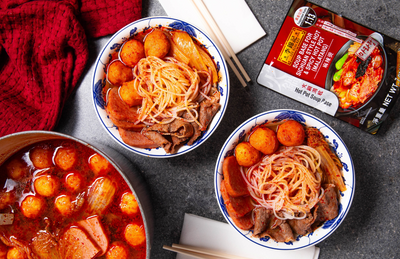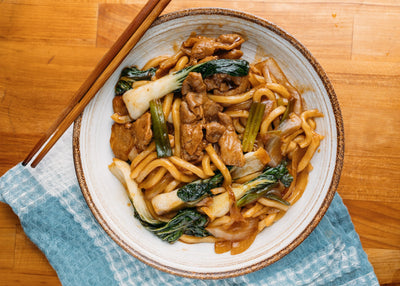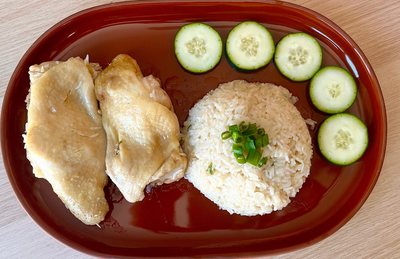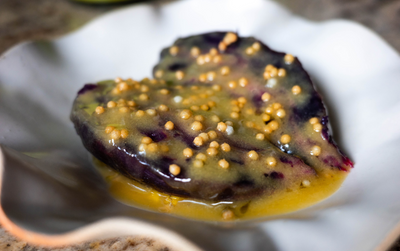Rice Wine vs. Rice Vinegar: What's the Difference
Rice wine and rice vinegar are popular ingredients in Asian cooking. But one question you might ask yourself often: what’s the difference between rice wine and rice vinegar?
Let’s explore the difference between rice wine and rice vinegar, along with their uses, whether they can be used interchangeably, and alternatives.
What Is Rice Wine?
If you know wine, you know that it is made from a fermentation process with grapes. Well, rice wine is made in much the same manner, except with rice instead of grapes. Yeast takes glutinous rice and turns the sugars into alcohol.
What Does Rice Wine Taste Like?

In any variety, rice wine is a sweet alcoholic beverage that is enjoyed in cooking and drinking. It can also be used for marinades or sauces, like teriyaki, as a flavor enhancer. It will add a subtle sweetness that can balance out the salty and intense flavors of other ingredients.
We can also enjoy some varieties as a drink as well. Some examples of rice wine include:
- Shaoxing wine, a Chinese rice wine
- Mirin, a sweet Japanese rice wine
- Sake, a dry Japanese variety
Even with the lightness of rice wine, the sweet bite does come through nicely and cuts through stronger flavors.
What Is Rice Vinegar?
Rice wine and rice vinegar are synonymous with each other. Rice vinegar does start off in a similar way to rice wine. The glutinous rice is first turned into wine, and then those sugars are turned into acid. Rice vinegar can be clear, red, or brown.
Adding to the confusion, rice vinegar is often referred to as “rice wine vinegar.” Like red and white wine vinegar, it is not an alcoholic beverage, and it is also not rice wine.
What Does Rice Vinegar Taste Like?
Rice vinegar is mild yet sweet. Of course, vinegar has a pungent, sour taste and smell. Rice wine vinegar is great for marinades and certain sauces, but it is vital for pickling processes.
What Is Rice Wine Used For?
There are plenty of uses for rice wine, and we are breaking them all down for you here.
In Cooking

You will be able to get a lot of flavor out of rice wine, considering how light and mild the flavors are. You will see rice wine listed as an ingredient for sauces and marinades, like teriyaki sauce. It is generally added to bring about balance and cut through heavier flavors.
When simmered, the sweet notes will fill the room in a pleasant way that you’ll be looking for reasons to cook with it more often.
It can also make the perfect base for stir fry sauces. It will cut through the more decadent flavors but in a way that enhances instead of downplays them. Shaoxing, or Chinese rice wine, is the most popular for this use and adds an extra depth of flavor that would be missing otherwise.
As a Beverage
Sake is the most common rice wine variety that is consumed as a beverage. The alcohol content is low and subtle. You would typically drink it from small sake glasses that hold about one ounce of rice wine at a time. The flavors are sweet yet mild, with a bite on the finish.
Did you know that it’s actually pretty healthy to drink rice wine? The drink is full of amino acids that provide your body with the building blocks it needs. There are even a few acids that are known to help fight free radicals!
In Marinades
Rice wine is a good ingredient in marinade recipes, especially for fattier meats. Why? The sugars and alcohol in the wine are perfect for cutting through the heavier and tougher parts of meat. This will make the rib-eye, for example, more tender and lock in flavor and moisture while cooking.
What Is Rice Wine Vinegar Used For?
Rice wine vinegar also has a plethora of uses similar and different from rice wine. Let’s go over those next.
Sushi
Did you know that rice wine vinegar is part of the sushi-making process? Rice wine vinegar is added to sushi rice, salt, sugar, and sometimes dried kelp. It gives the rice its distinct flavor and texture, making it perfect for rolling.
The flavor is mild and tart but pairs nicely with the sugar and salt to make the rice stand out against the other ingredients.
In Marinades
Marinades benefit a lot from the flavors of rice wine vinegar. You’ll get a sour or tart bite from rice vinegar that amplifies the heartier flavors in other ingredients. It also helps to balance these flavors for umami.
To get the most umami richness, you need to have a balance of all the flavor profiles and get the most satisfaction out of your food. Rice wine vinegar does that for richer, heavier saltier flavors that need balance to keep from being overpowering.
As a Dipping Sauce

Dipping sauces utilize rice vinegar in a lot of ways. For one, many dipping sauces are heavy and strong in certain flavors. Rice wine vinegar can thin out thicker, heavier sauces and nicely cut through some of those rich flavors.
In Asian cuisine, many dipping sauces also have a decent amount of spice, whether heat from chilis or warmth from ginger or garlic. Rice wine vinegar will amplify these flavors and create a pleasant balance for your palate.
Salad Dressings
If you’ve ever had a salad with a vinaigrette, you’re already a fan of vinegar. With rice vinegar, you’ll have a mildly sweet dressing for salads popular in Asian cuisine. Items like cucumber salad, which is popular on sushi menus, or traditional Korean green onion salad require rice vinegar as a base for the dressing.
Are Rice Wine and Rice Vinegar Interchangeable?
Short answer, no. They might have similar cooking methods, but they are used in different ways to achieve very distinctive flavors.
How Is Rice Vinegar Made?
Think of it like this: all rice vinegar is rice wine, but not all rice wine is rice vinegar. Did that help? Now for the long-winded version. Glutinous rice is fermented down and combined with yeast to turn all the sugars into alcohol. At this point, rice wine is made. Then, these same sugars are further fermented to create acetic acid. This acetic acid is what gives rice vinegar its distinct sour pungency.
What Can I Substitute for Rice Vinegar?
There are many substitutes for rice vinegar that can be made at a 1:1 ratio without drastically changing the flavors.
White Wine Vinegar
White wine vinegar will make an easy substitute for rice vinegar, especially in sauces, marinades, and vinaigrettes.
Apple Cider Vinegar
Apple cider vinegar definitely has natural apple flavors that come through pretty assertively. In this case, you can use apple cider vinegar in a pinch, but know that it will impart a little variety of flavors.
Lemon Juice
Lemon juice will give you citric acid, which will have a puckering effect similar to acetic acid. However, acetic acid has a bit more balance, as it needs sugar to get to where it is. In this case, using lemon juice will work but also add a little sugar to level the playing field.
Sherry Vinegar
Sherry vinegar has a lot of the same dry but sweet pungency as rice vinegar. It can be used as an excellent alternative for rice vinegar, but it is much stronger in taste. The distinct sherry flavor will come through, so add a taste of sugar to balance it out.
What Can I Substitute for Rice Wine?

White Wine
White wine is very similar to rice wine. When you need to sub in white wine for rice wine, look for something drier and more fruit-forward.
Instead, stick to alternatives like sauvignon blanc or a dry riesling. These will have fruitier qualities than rice wine but on the same sweet notes. If you’re planning on drinking something similar, dry riesling is a great choice.
Dry Sherry
Dry sherry has a stronger and sweeter flavor than rice wine. If you’re drinking it, you will get more bite from dry sherry. Dry sherry will work nicely in teriyaki and stir fry.
White Grape Juice
This could be a great option to give the kids or those that don’t drink if everyone is toasting with rice wine. For cooking, it will provide a lot of the same flavor profiles as rice wine.
White grape juice is sweet and light. Some of the other options for substitutes are heavier flavors, but white grape juice is generally subtle. Second, it will cut through many rich flavors in cooking, making it an excellent ingredient for dipping sauces and marinades.
An additional note: When used in sauces, the recipe first calls for heating up the rice wine. This is to cook off the residual sugars and the alcohol to make it safe for everyone to eat. However, you won’t need to go through this step if you’re using juice.
The Bottom Line
Rice vinegar and rice wine are both made with fermented rice. However, the vinegar undergoes an additional process to remove the alcohol and produce acetic acid – making it safe for everyone!
As rice wine is ideal for cooking and drinking, rice vinegar can be used for lighter dishes, such as sushi, marinades, sauces, and salad dressings. Despite their common names, you should not use rice wine for rice vinegar or vice versa.
Ready to start cooking? Check out Umamicart for all your favorite Asian ingredients.
Sources:
What's the Difference Between Rice Wine and Rice Vinegar? | Kitchn
Anti Fatigue and antiaging effects of Chinese rice wine in mice | PMC
Free radicals, antioxidants, and functional foods: Impact on human health | PMC

